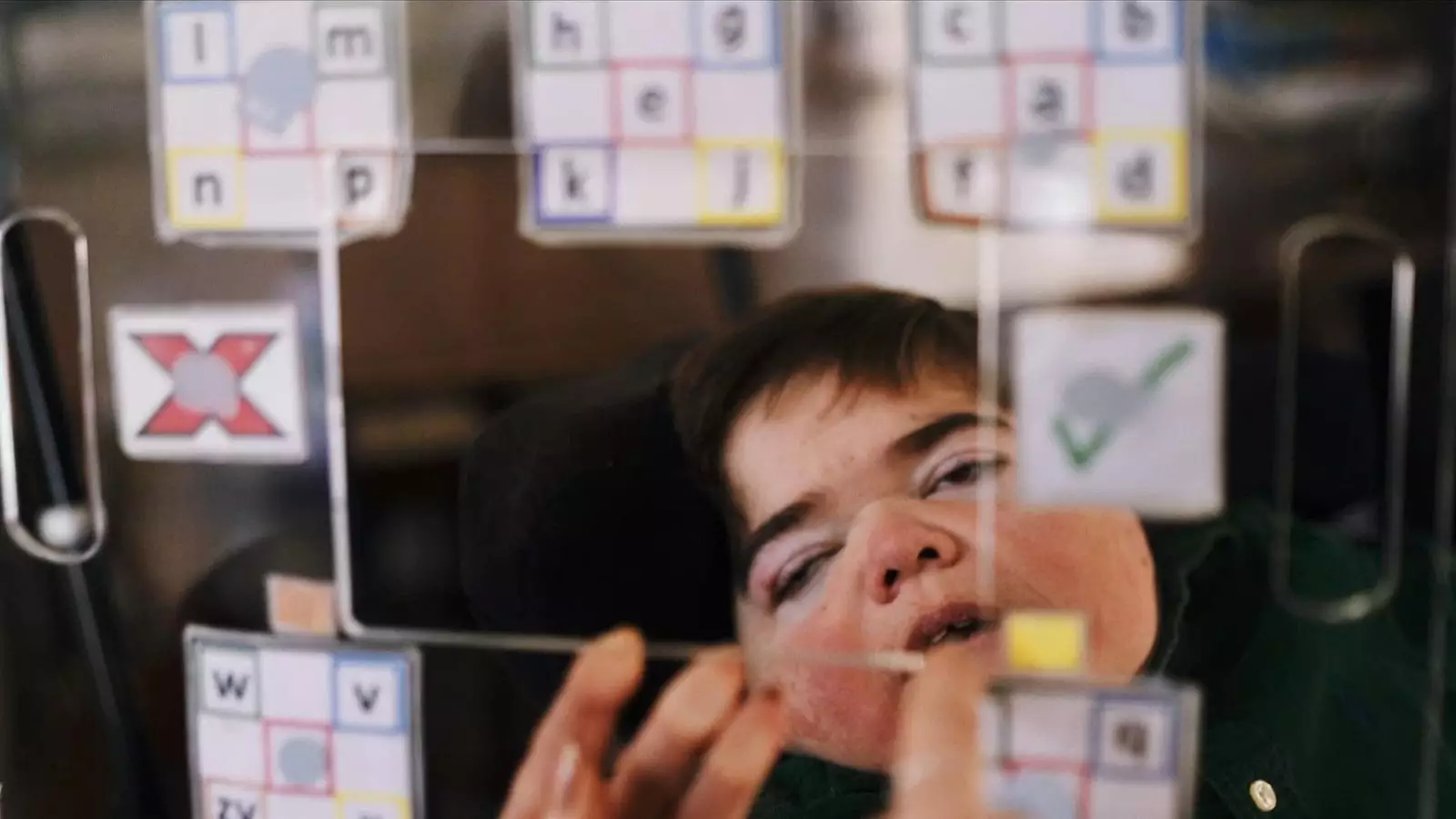In a world where labels can unjustly dictate the trajectory of one’s life, the story of Jonathan Bryan—who overcomes the severe limitations of cerebral palsy to become an eloquent advocate for marginalized voices—stands as a powerful testament to resilience. Despite being labeled with profound and multiple learning disabilities (PMLD), Jonathan’s mother recognized that this classification merely served as a barrier rather than a true reflection of his abilities. With unwavering support, she equipped him with the tools to communicate, ultimately allowing him to rise to prominence as a published author and voice for those who cannot speak for themselves.
The school system’s reliance on such labels can lead to disastrous consequences, wherein children deemed “non-verbal” are often incorrectly classified as incapable learners. This systemic failure emphasizes the need for educators and administrators to confront established myths surrounding disability and intelligence. The assumption that a lack of speech equates to a lack of intellect is not just a failure—it’s an affront to the potential hidden within every student.
Communication Barriers: A Painful Reality
Jonathan’s insights underline a harsh reality: many educators default to assumptions based on limited understandings of complex needs, resulting in a self-defeating cycle of neglect. When students are not provided with the necessary tools to engage with their education, it’s only natural that they may struggle with literacy and comprehension. Jonathan aptly describes this phenomenon as a “self-fulfilling prophecy,” where preconceived notions about a student’s abilities precipitate genuine barriers to learning.
Non-verbal individuals, often hidden in plain sight, possess thoughts and ideas that remain unarticulated due to societal barriers rather than personal incapacity. Jonathan’s experiences shine a light on this oversight and challenge teachers to reconsider their approach. Ignoring the potential of these students perpetuates societal inequities, reinforcing the stigma around disabilities while simultaneously depriving the world of invaluable perspectives.
The Role of Educators: An Urgent Call to Action
For educators, the call to action is clear: elevate your expectations for every learner, regardless of their communication abilities. Teachers play a crucial role in dismantling the misconceptions that surround PMLD. By adopting a more inclusive pedagogical framework, educators can challenge the narrative that leads to underestimating students. It is essential for the curriculum to foster creativity, critical thinking, and independence, thus recognizing the inherent value of all students.
Additionally, Jonathan’s recommendation for teachers is not just an abstract appeal; it is an urgent plea. He poignantly suggests that teachers should never equate the absence of speech with a lack of thought. By integrating diverse teaching strategies that encompass the abilities of all students, we can facilitate a learning environment that thrives on mutual respect and understanding.
The Long Road Ahead: Advocacy and Awareness
Despite Jonathan’s remarkable achievements, he acknowledges that much work remains to be done to ensure that the rights and capabilities of individuals with complex needs are respected and recognized. While Jonathan’s efforts have led to increased awareness, the responsibility of advocacy should not solely rest on the shoulders of those affected. It is incumbent upon society as a whole—educators, policymakers, and community members—to advocate for inclusive practices and push for legislative change that mandates comprehensive education for all students with disabilities.
Jonathan’s initiative, Teach Us Too, serves as a profound reminder that awareness must be coupled with action. The collaboration between individuals with disabilities and those who have the means to advocate for change is essential in creating a more inclusive society. Stories like Jonathan’s illustrate the potential for transformative change when people are empowered to share their experiences.
The Power of Voice: Challenging the Status Quo
Ultimately, Jonathan Bryan is not just challenging stereotypes; he is rewriting the narrative surrounding disability and education. His journey indicates that teaching is not merely about imparting knowledge; it is about seeing and nurturing the whole person behind the label. As we continue to learn from advocates like Jonathan, it becomes clear that the conversation surrounding education must evolve, embracing the diversity that exists within our classrooms.
By elevating stories that resonate with the core of human experience, we not only enrich our understanding of what it means to learn but also affirm the fundamental belief that everyone, regardless of their abilities, deserves a chance to express themselves. As we progress, let us commit to dismantling the barriers that silence so many and ensure that every voice is acknowledged, promoting a culture of inclusion where none are left behind.


Leave a Reply